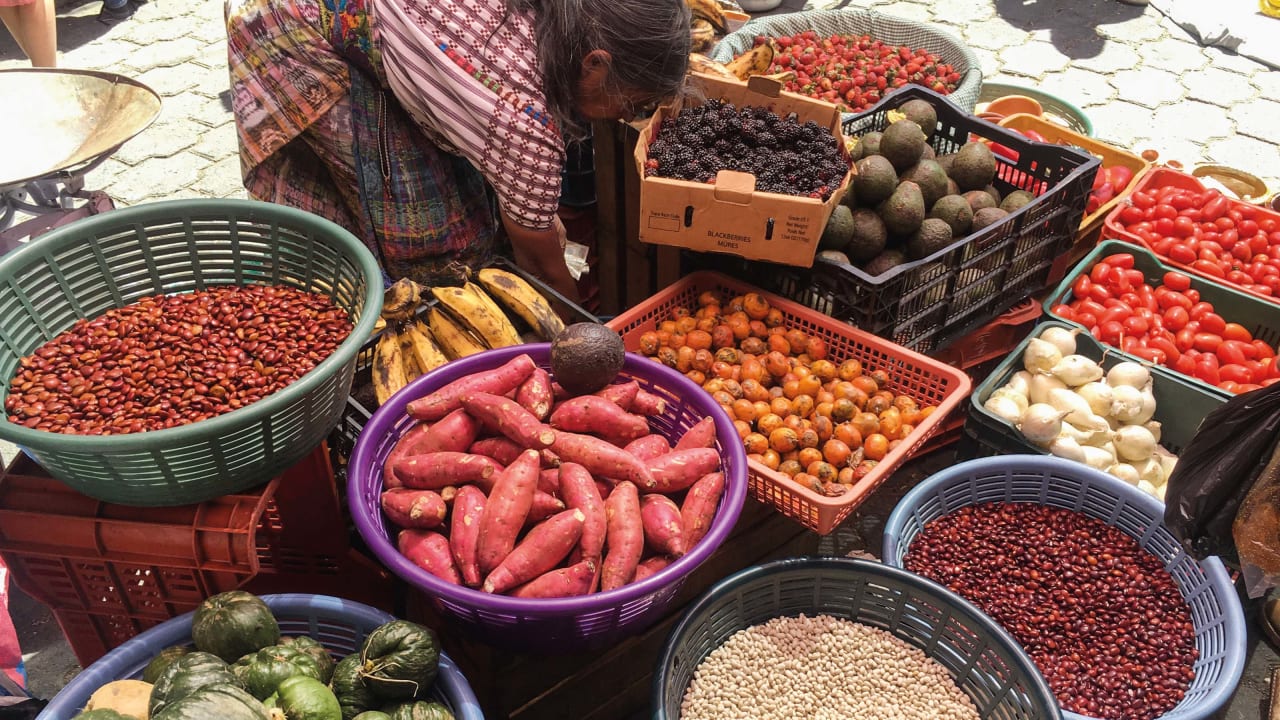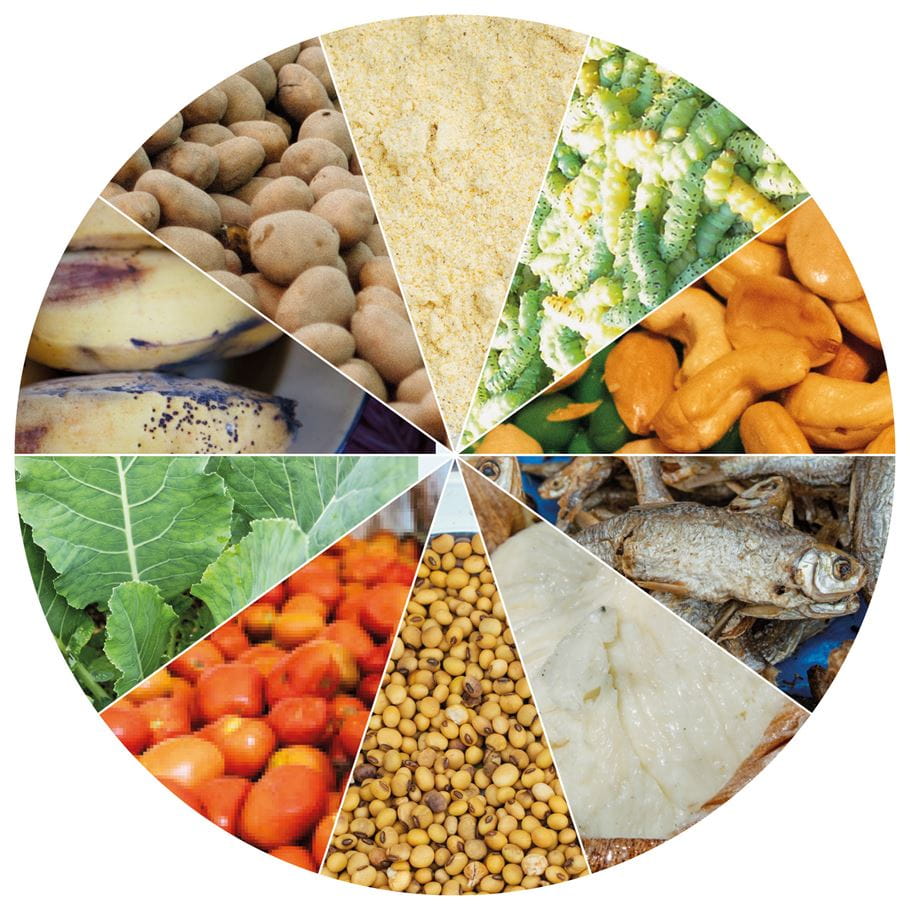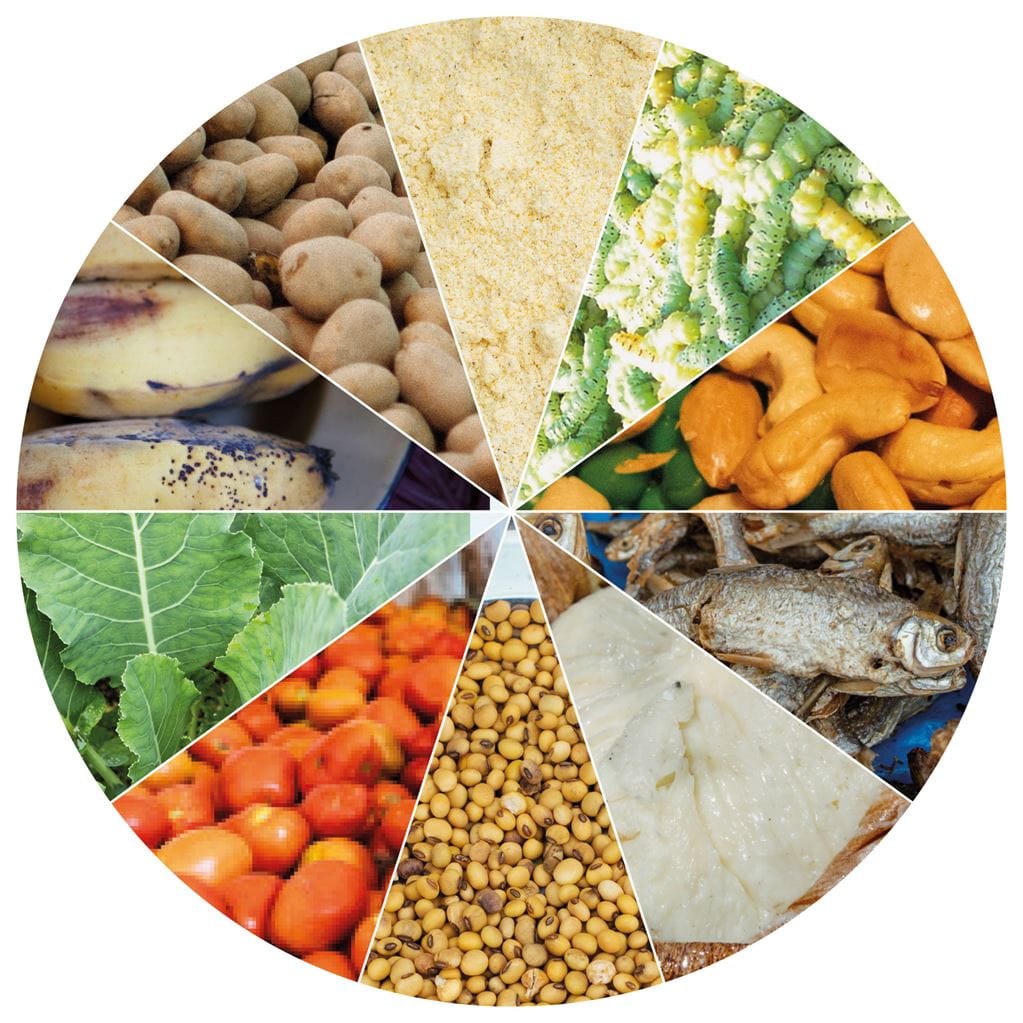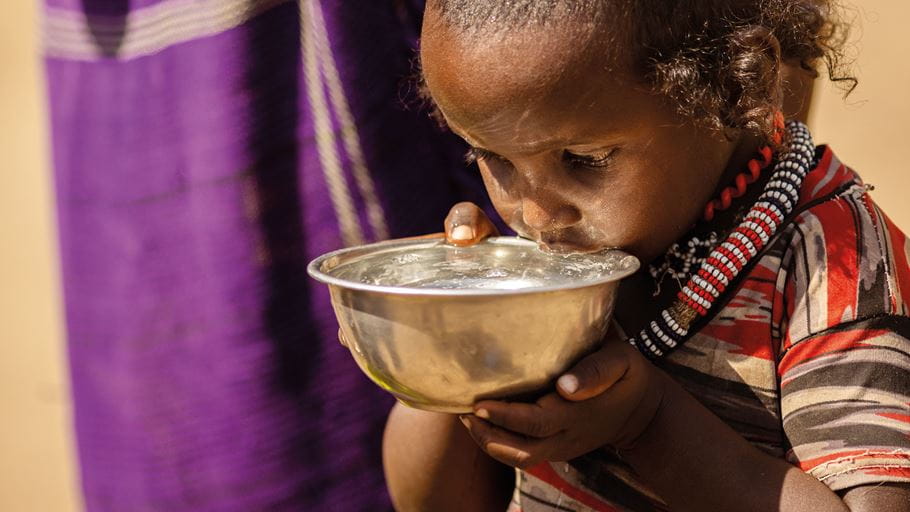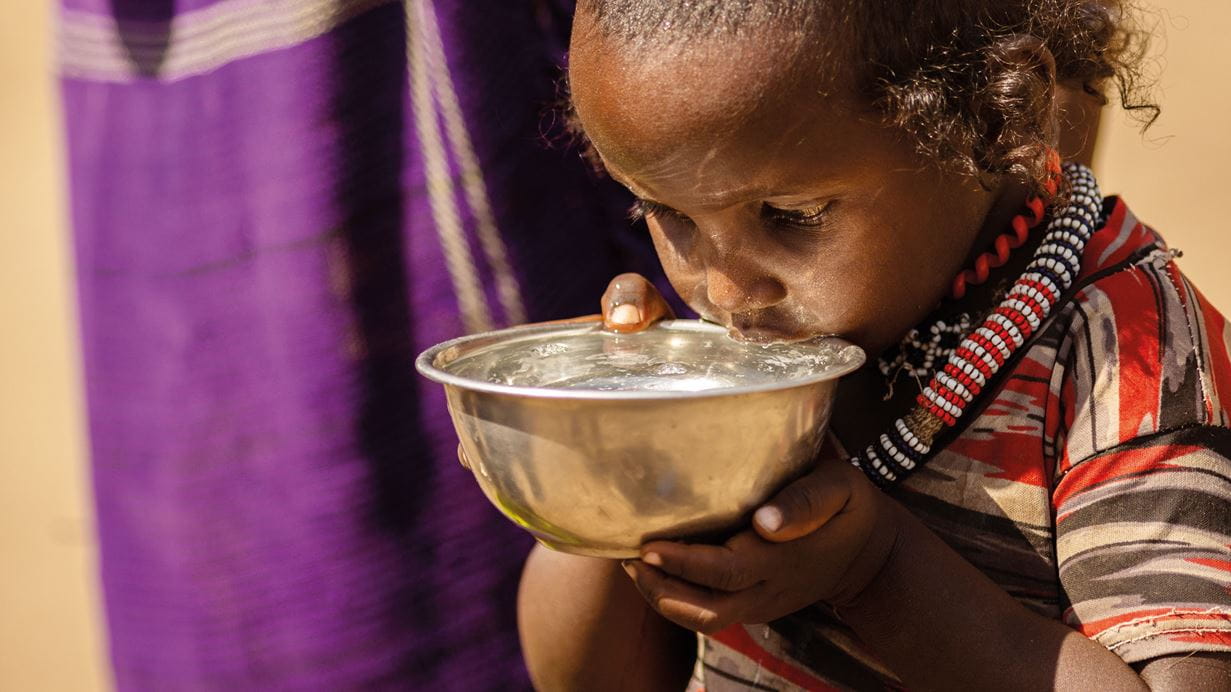To be healthy, strong and energetic our bodies need a variety of foods from each of five nutritional groups.
These groups are:
-
Carbohydrates
These provide the energy we need to keep our bodies working. Foods rich in carbohydrates include grains, some fruits and root vegetables. -
Proteins
These provide the building blocks our bodies are made from and are essential for growth, good function, healing and repair. Protein-rich foods include beans, pulses, fish, meat, eggs and insects. -
Fibre
This is important for good digestion and helps to reduce many diseases. Vegetables and fruit are good sources of fibre. -
Fats and oils
These are needed for many essential body functions. Foods such as oils, butter, cheese, nuts and seeds are high in fat. -
Vitamins and minerals
Although we only need small amounts of these each day, they are very important for everything our bodies do. We become weak and sick if we do not have enough of them. Good sources of vitamins and minerals include fruits, vegetables and insects.
Eating too much or too little from these groups means our bodies do not receive the full balance of nutrients they need to work properly.


